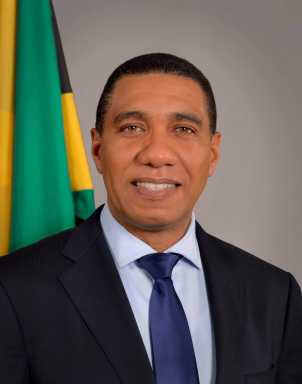Listeners:
Top listeners:
-
play_arrow
RadioJLR Just Press Play
Barbados
After a ruptured crude oil pipeline at the Barbados National Energy Company Ltd (BNECL) fuel loading facility caused oil to spill onto the beach, efforts are being made to contain and clean up the oil spill in Oistins, on the island’s south coast.
According to government officials, there has been no evidence so far that the oil has entered the sea, as Minister of Energy Lisa Cummins visited the affected site with a team from BNECL.
Physical barriers were used to prevent the spread of the oil into marine ecosystems, as continuous flushing of underground drainage systems, extraction of tainted sand, and filtration of oily water were part of the clean-up operations.
BNECL’s Group Health and Safety Manager Damien Catlyn explained the containment and flushing strategy, adding that a layered defence has been constructed along the coastline to minimise the environmental impact. So far, inspections have not revealed any oil entering the marine environment.
Minister Cummins noted that hidden contaminants posed their challenges while visible oil was being addressed.
Specialized equipment flushes out residual oil through drainage systems, which is then collected by skimmers and transported to holding tanks. The recovered oil is then taken to BNECL’s facility for processing.
While the full extent of environmental impact is still being assessed, Cummins gave assurances that the situation is being managed with transparency.
Dominica
The executive board of the International Monetary Fund (IMF) says Dominica’s economy has continued to grow. Real gross domestic product (GDP) grew by 3.5% last year, supported by a recovery in tourism and targeted development investment to boost economic capacity and competitiveness.
The IMF executive board said inflation has eased from 7 % in 2023 to an average of 3.1 % in 2024.
“Tourism arrivals have surpassed pre-pandemic levels by roughly 32 %, but the composition has shifted towards cruise visitors over stayovers. The labor market recovery remains uneven, with formal employment lagging behind overall growth.”
The IMF said that fiscal and external imbalances have narrowed but remain large. Public debt has steadily declined from its pandemic peak but remains elevated at 100 % of GDP.
“The financial system is liquid with a mixed credit picture and balance sheet fragilities that require monitoring. Bank credit has declined since 2023, reflecting ongoing de-risking amid persistent balance sheet challenges, notably elevated non-performing loans (NPLs) and still fragile provisioning.
Meanwhile, the credit union sector is expanding its lending portfolio rapidly despite weak capitalization, high NPLs, and limited provisioning. Modernizing these institutions’ supervisory framework is a priority to safeguard financial sector stability given their growing systemic importance.”
The IMF executive board said that Dominica’s economic expansion is poised to continue, but risks to the outlook are elevated and tilted to the downside.
Grenada
According to figures published by the Ministry of Finance, Grenada has recorded a decline of more than EC$90 million in revenue for the first four months of the year as compared to the same period last year.
The ministry said that for January to April this year, the government’s revenue stood at EC$412.2 million as compared with EC$505 million for the same period last year, adding that the most significant reduction was revenue from the Citizenship by Investment (CBI) Program under which Grenada provides citizenship to foreign investors in return for making a significant investment in the socio-economic development of the country.
According to the figures, in the first quarter of last year, the country earned EC$160.9 million in revenue from the CBI as compared with EC$69.4 million for this year, a shortfall of EC$91.5 million.
The Ministry of Finance had earlier projected that the government would earn EC$61.7 million for the same period this year, but the actual collection was EC$69.4 million.
According to the data, the Customs and Excise collected EC$156.7 in revenue during the first four months, surpassing the EC$149.2 million collected in 2024.
The Inland Revenue Department (IRD) collected EC$169.3 million, a decline as the revenue earned was EC$171.7 million for the same period in 2024.
The ministry said the reduction was due to a decline in non tax miscellaneous revenue. As of January 2023, the Ministry of Finance began reporting all CBI revenues as non-tax revenues. Previously it was described as grants to the government.
Current revenue collections fell short of projections, mainly due to a decline in non-tax miscellaneous revenues; said the April 2025 Fiscal report, which is publicly available on the website of the Ministry of Finance.
Guyana
The Guyana government has welcomed the decision of Canadian-based airline Air Transat to begin scheduled flights to the country in December.
Minister of Public Works Bishop Juan Edghill, speaking at the inaugural flight of KLM Royal Dutch Airlines to Guyana, said the country has welcomed air services from Dominican Republic air carrier Sky Cana, British Airways, Inter-Caribbean Airways, Jet Blue, Fly Always, Suriname Airways, and now KLM Royal Dutch Airlines in just five years.
“June 4 marks the progress made in the aviation sector from 2020 to 2025. This (KLM Royal Dutch Airlines) is the ninth international carrier that I have had the opportunity to stand at the Cheddi Jagan International Airport (CJIA) and welcome to Guyana … Our air navigation services in Guyana are second to none in this hemisphere,” Edghill said, adding that signifies Guyana’s growing prominence on the global stage.
“And I believe with the good support and the rational, responsible actions of the Guyanese people on December 16, we would be able to stand here and welcome the tenth Air Transat from Canada.”
Air Transat, which passengers voted the 2024 World’s Best Leisure Airline at the Skytrax World Airline Awards, will operate twice weekly, on Tuesdays and Fridays, from Dec. 16, 2025, to April 24, 2026.
In December 2024, Air Canada announced plans to launch direct flights between Guyana and Canada in 2025.
Haiti
With the Atlantic hurricane season underway, the UN World Food Programme (WFP) is sounding the alarm over Haiti’s humanitarian situation.
Haiti is one of five countries in the world with catastrophic levels of hunger, with more than half the population facing some emergency level of hunger and more than one million people displaced due to ongoing gang violence and insecurity.
As the hostilities are disrupting the food systems and supply chains in the capital, Port-au-Prince, WFP is facing a “quite dramatic” situation, said Regional Director in Latin America and the Caribbean Lola Castro, who recently returned from the country.
Displaced populations are faced with a “very problematic” situation, she said, as hostilities have recently uprooted around 14,000 people from the commune of Kenscoff.
“Kenscoff is a commune where people used to come and sell their food,” she said, and the same people are now relying on food assistance after their houses were burned and their livelihoods destroyed.
With 6,000 cases of gender-based violence having been reported this year, the situation of women and girls in Port-au-Prince is dramatic, according to Castro.
The city is probably “one of the most dangerous places in the world” for women and girls. “We need to provide them support to ensure that they become less vulnerable and are not exposed to all this violence,” she said.
The 2025 Humanitarian Response Plan for Haiti calls for just over $908 million but is only 8 % funded.
The hurricane season runs from June 1 through the end of November, and Castro warned that at this time when half of all Haitians are already going hungry, a single storm could push millions into a humanitarian catastrophe.
“We cannot forget the people of Haiti,” Castro said, calling on the humanitarian community to provide urgent support.
St. Kitts-Nevis
St. Kitts-Nevis Minister of Sustainable Development, Environment, Climate Action and Constituency Empowerment, Dr. Joyelle Clarke, says there is still much more work to be done even as global leaders gathered for the highly anticipated third United Nations Ocean Conference (UNOC3).
Addressing an event, Clarke spoke on various issues, from countries on the frontline of the climate crisis to engaging in critical discussions on advancing global cooperation, protecting vulnerable nations, and driving urgent solutions to climate-induced migration and ocean sustainability.
She told the event that brought together a select group of ministers and global partners from Fiji and Tuvalu that it is essential for small island developing states (SIDS) to be present, especially at a time when the world’s attention is sharply focused on the devastating effects of climate change on small islands.
“There is still so much work that needs to be done, but what is equally important is recognizing the spaces that gatherings such as these create. They allow us to not only share our technical priorities, but also to ex-press solidarity, bring personal experiences to the table, and remind the world that for small island nations like ours, climate change is not an academic discussion, it is an existential reality.”
She said St. Kitts and Nevis continues to use every opportunity to advocate for urgent global reforms, amplified financing, and concrete action to protect the most vulnerable.
Compiled by Devika Ragoonanan
Written by: Adm
Similar posts
© 2025. All Rights Reserved by Radio-JLR



